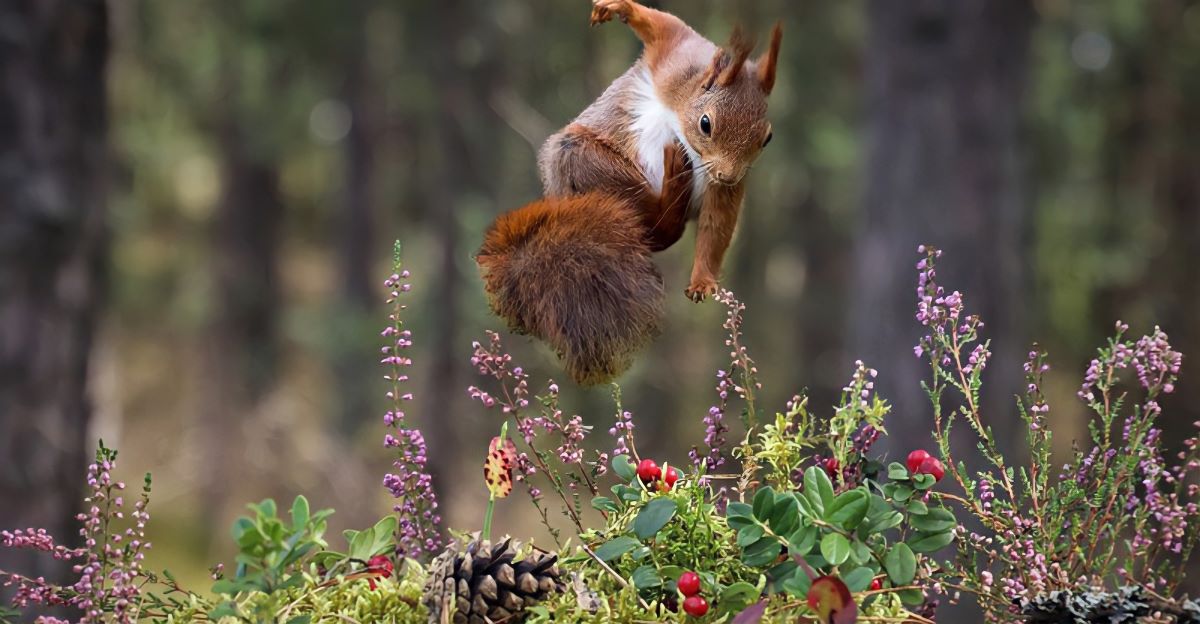
We often think of squirrels as harmless yard intruders or energetic nut hoarders. But these small mammals are far more than furry distractions. Underneath the playful exterior lies an elite survivalist—sharp, agile, and engineered for nearly any habitat.
Their talents range from acrobatics to deception, inspiring scientists studying everything from memory to robotics. Squirrels don’t just survive—they thrive, even in environments filled with danger or change. So before brushing them off as cute nuisances, it’s worth looking closer. What we see as mischief is actually mastery. Let’s unpack the extraordinary skills that keep squirrels steps ahead in the wild.
1. They Have A Great Memory
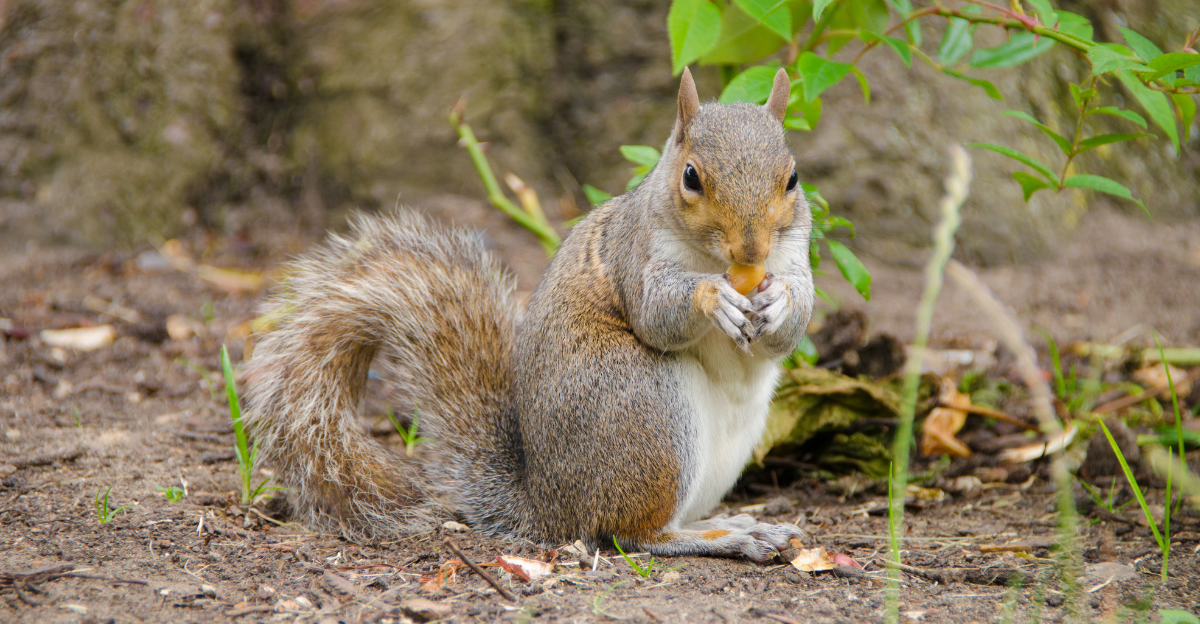
It may look random when squirrels bury acorns, but research tells another story. These animals use spatial memory so advanced, it rivals the abilities of birds known for food caching. Months after hiding a nut, squirrels can recall the exact spot—even under snow or shifting terrain. This memory feat ensures survival through harsh winters, when fresh food is rare.
Scientists believe this skill relies on landmark recognition and mental mapping. In a world of uncertainty, their internal GPS is a lifeline. Squirrels don’t rely on luck—they rely on brainpower, and it’s what keeps them remarkably resilient year after year.
2. They’re Super Agile at Jumping and Climbing
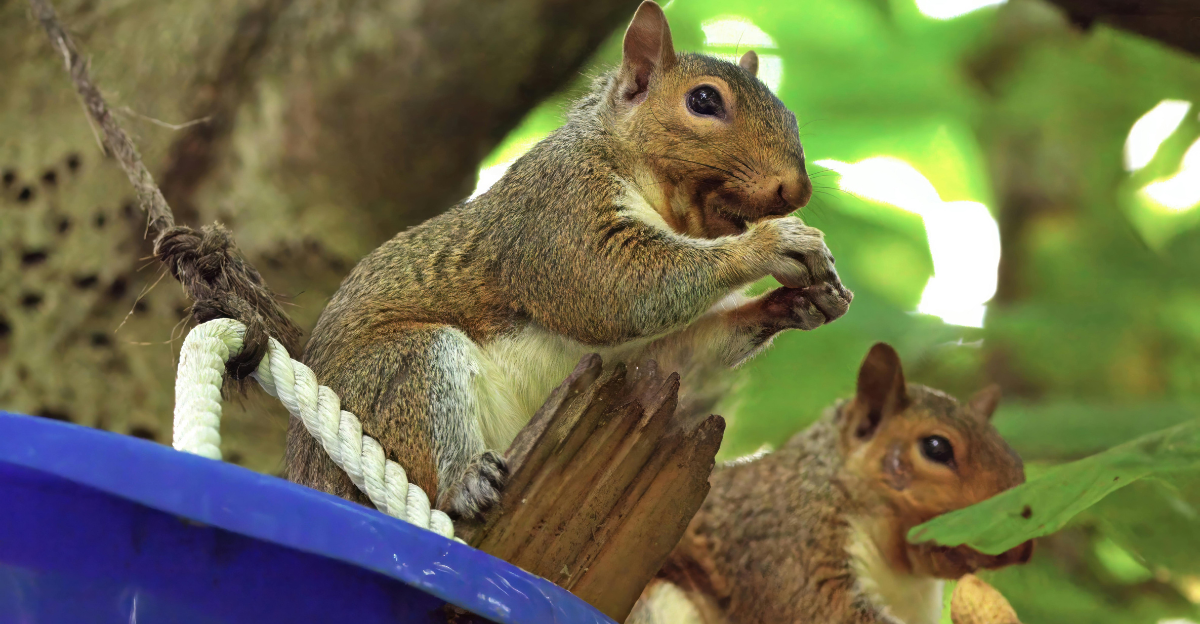
When a squirrel leaps from branch to branch, it’s not just instinct—it’s physics in motion. Studies show squirrels make calculated jumps, adjusting their takeoff based on branch flexibility, surface angle, and landing conditions. They twist midair to stabilize themselves, using their tails like rudders. These adjustments happen in milliseconds, allowing them to move swiftly through complex environments.
This isn’t random agility—it’s precision acrobatics. Much like human parkour athletes, squirrels excel at turning obstacles into pathways. In the wild, that edge means one thing: survival. Predators can’t predict them, and gravity rarely wins. Their movement is their most dazzling defense.
3. Their Flexible Feet Help Them Climb Anything
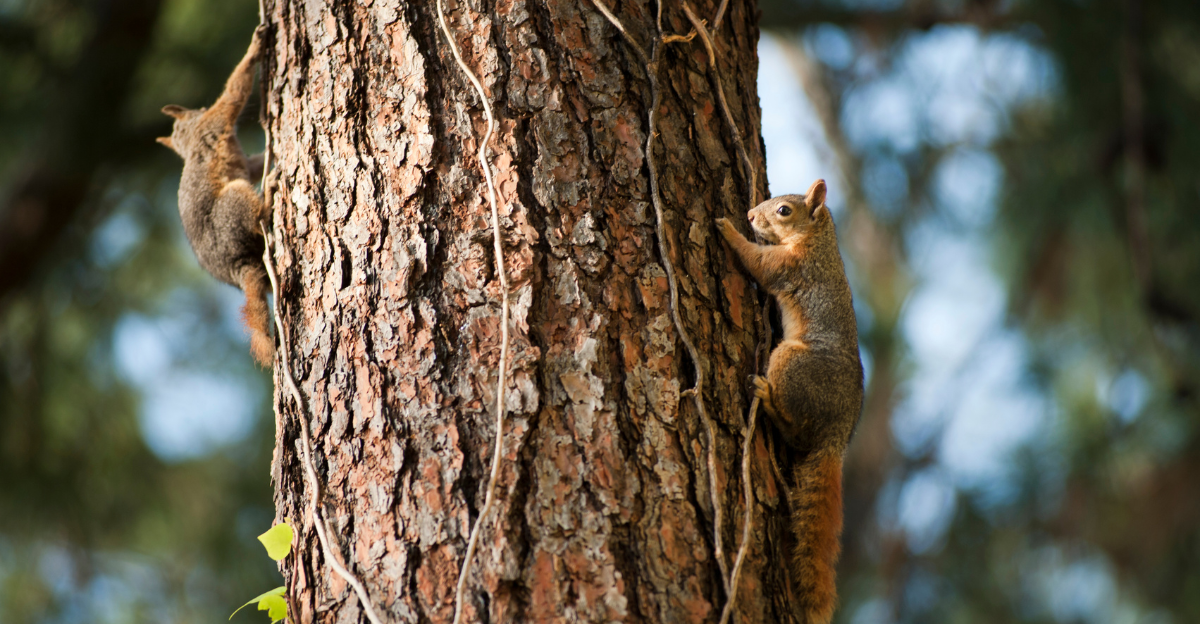
Squirrels possess a rare anatomical gift: their hind feet can rotate 180 degrees. This lets them climb down trees headfirst, grip vertical surfaces, and navigate narrow ledges with ease. Few mammals share this trait, and it’s why squirrels move through treetops or urban structures without hesitation. Whether scaling bark or brick, their paws act like natural crampons.
This unique joint flexibility transforms their environment into an open playground—no tree too tall, no fence too steep. While humans need ropes and gear, squirrels are born climbers. In the wild, this ability often means the difference between escape and being caught.
4. They Can Chew Through Tough Materials
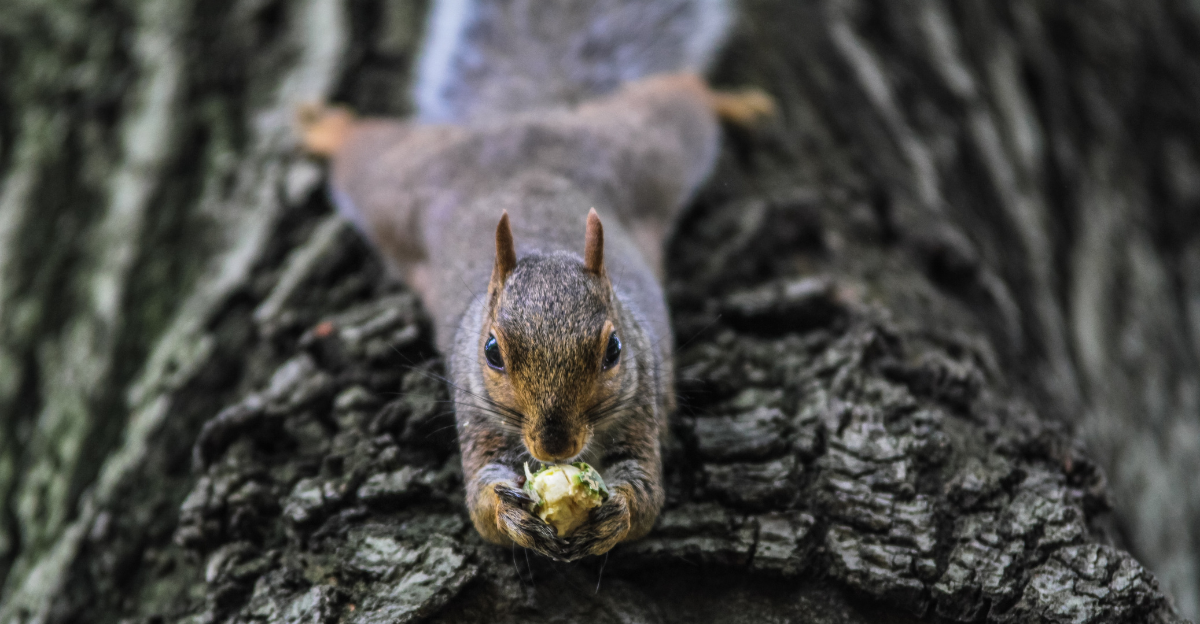
A squirrel’s teeth grow continuously, forcing it to gnaw daily just to keep them in check. This isn’t just about nuts—it’s about survival. Their powerful jaws can tear through wood, plastic, even soft metals, allowing them to access hidden food or break out of tight enclosures. In urban areas, this frustrates homeowners. But in the wild, it’s essential.
That relentless chewing helps squirrels reach food others can’t and carve shelter when time is short. Their bite is more than strong—it’s strategic. With teeth like living tools, squirrels are always ready to adapt, break through barriers, and stay alive.
5. They Escape Predators with Fast, Zigzag Moves
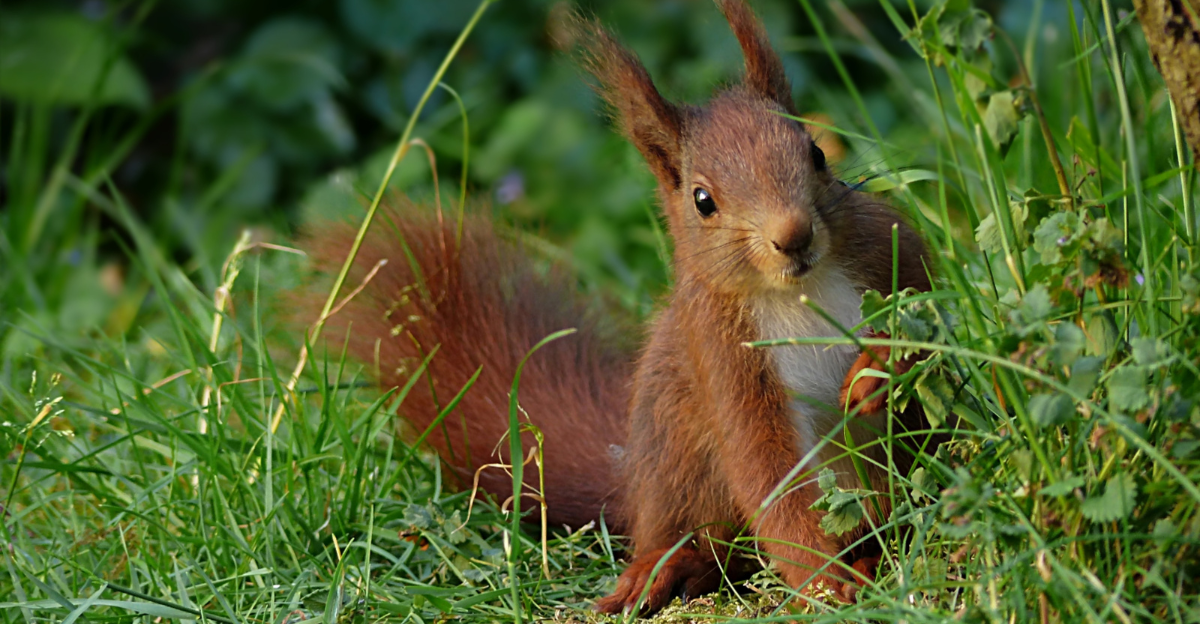
When a predator strikes, squirrels don’t flee in straight lines. Instead, they dart in sharp, unpredictable zigzags, a tactic that confuses attackers and buys precious seconds. Hawks, foxes, and cats often miss their mark as the squirrel’s erratic sprinting makes timing nearly impossible. This built-in evasion technique is more than instinct—it’s a survival algorithm.
By changing direction without warning, squirrels make themselves tough to track, even in open terrain. This reactive agility, combined with their speed, gives them a serious edge. In the wild, running isn’t enough—you have to be clever about it. Squirrels turn escape into an art form.
6. They Listen Closely to Other Animals for Warnings
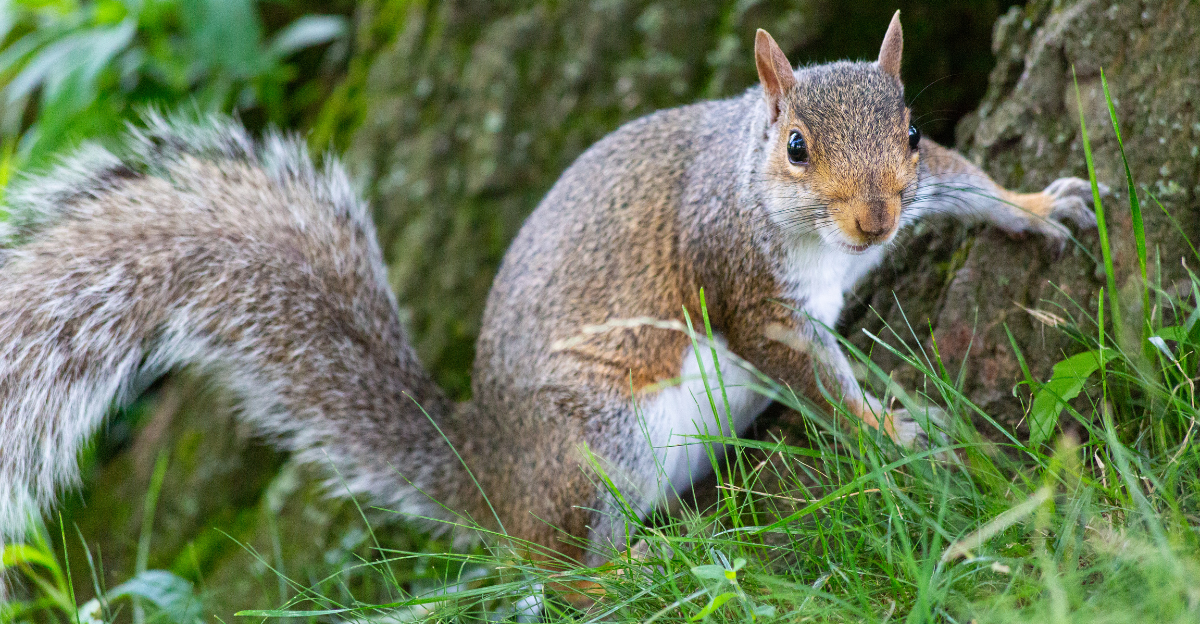
Squirrels don’t just watch their surroundings—they listen, too. Researchers found that squirrels monitor bird chatter, using it as a kind of security system. When birds sing normally, squirrels go about their business. But if alarm calls go up, squirrels freeze or flee. This behavior reveals a remarkable social awareness.
Instead of relying solely on their own senses, squirrels tap into the wider ecosystem for alerts. It’s a survival trick rooted in trust—if the birds panic, there’s reason to be wary. In a noisy world, squirrels know how to filter for meaning. Listening, in this case, is life-saving intelligence.
7. They Trick Rivals by Hiding Fake Food Caches
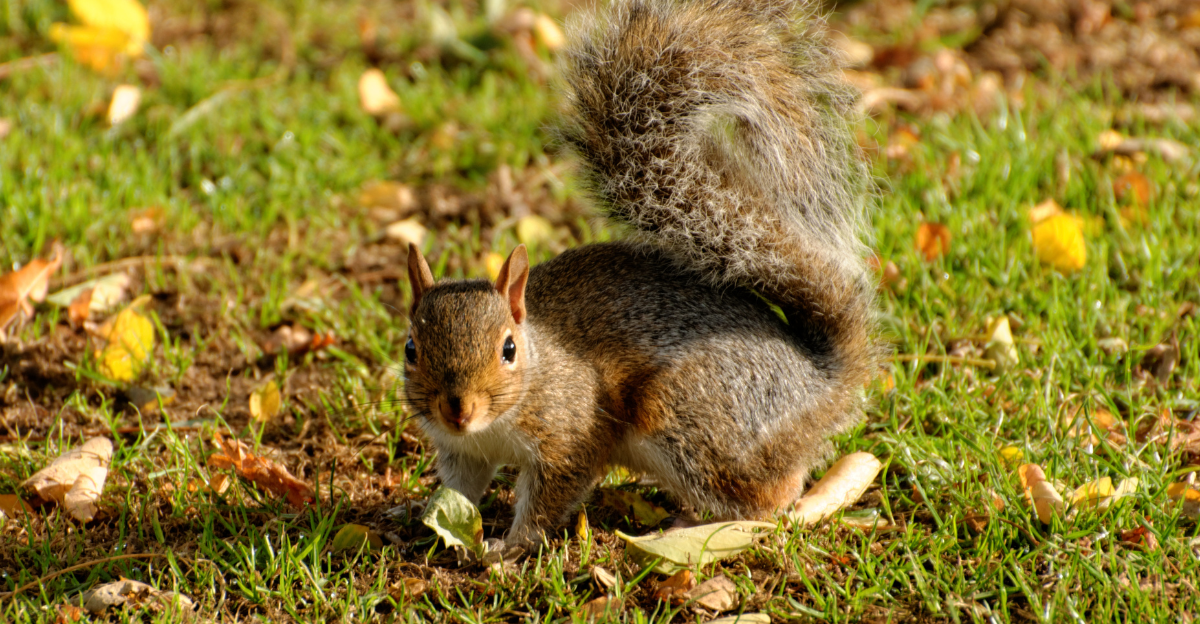
Think stealing from a squirrel is easy? Think again. When squirrels sense they’re being watched, they often dig decoy holes or rebury the same nut multiple times. These fake-outs confuse rivals—including other squirrels—and show advanced cognitive strategy. It’s not just instinct; it’s learned behavior.
Scientists have observed squirrels assessing threat levels and adjusting their deception tactics accordingly. This misdirection helps them keep their food reserves secure over long winters. Outsmarting thieves requires planning, memory, and even improvisation. In the wild, it’s not always the strongest that survive—it’s the smartest. Squirrels prove that brains can beat brawn, one fake cache at a time.
8. Their Unique Personalities Help Them Stay Safe
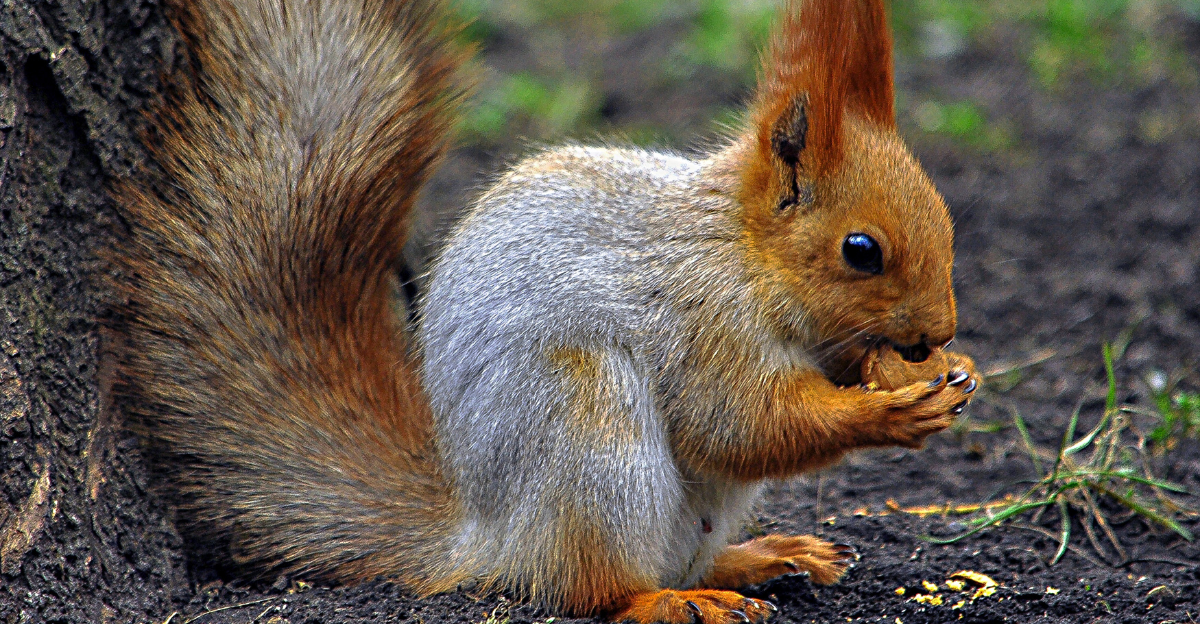
Squirrels aren’t all alike. Some are daring, others cautious—and it matters. Studies show bolder squirrels claim higher perches and better access to food, while shy ones stay grounded and more reactive. These personality traits influence everything from predator detection to mating success. Even in species considered solitary, social dynamics still play a role.
Knowing when to assert or retreat helps squirrels navigate competition and danger alike. This range of behaviors isn’t just interesting—it’s advantageous. A diverse population adapts faster and resists threats better. Squirrels thrive not in spite of their differences, but because of them. Individuality, in their case, is survival.
9. They’re Smart Learners Who Watch and Copy
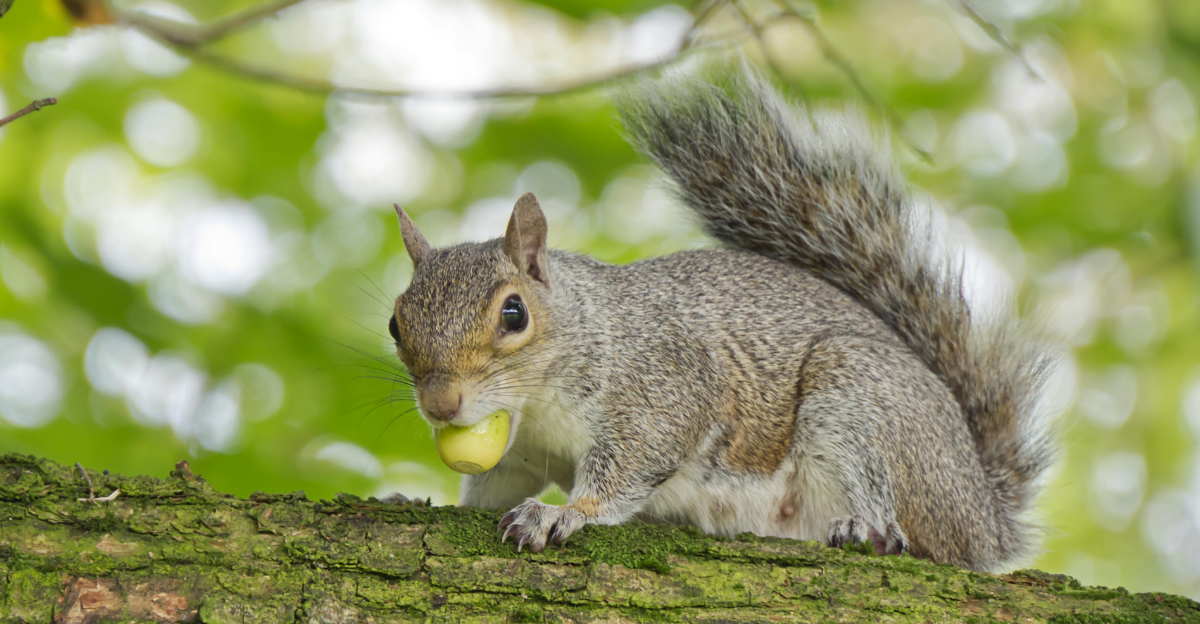
Squirrels don’t just rely on trial and error—they observe. Whether it’s finding food, navigating obstacles, or spotting predators, squirrels can learn simply by watching others. This social learning speeds up adaptation and helps knowledge spread across populations. For example, if one squirrel discovers a new food source or trick for accessing a bird feeder, others soon mimic it.
This behavior is rare among wild mammals and marks a higher cognitive capacity. It’s not just instinct driving them—it’s observation, memory, and imitation. In a constantly changing world, that kind of learning gives squirrels a shared edge across generations.
10. Squirrels Have High Sense of Smell
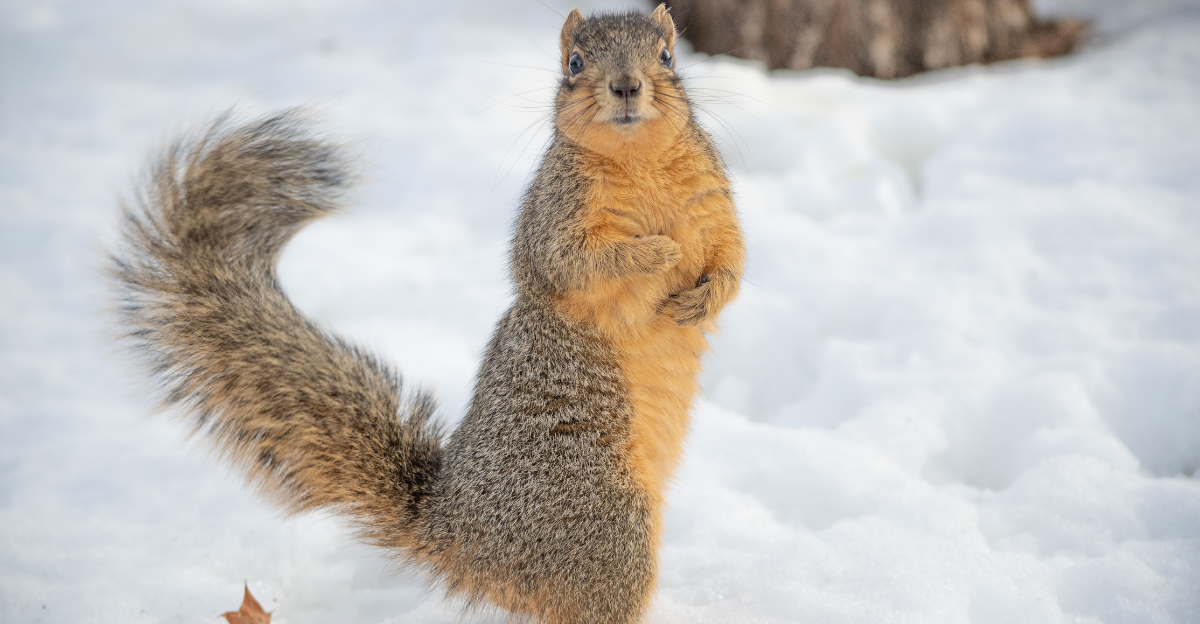
Even under a blanket of snow, squirrels can sniff out buried nuts with remarkable precision. Their sense of smell is so refined, they can detect food hidden months earlier—even through layers of soil or frost. This ability keeps them fed during the coldest months, when foraging options are slim.
It also ensures their meticulous caching efforts don’t go to waste. While humans rely on tools to find what’s lost, squirrels follow scent trails no weather can erase. In winter’s silence, their nose becomes their compass—guiding them back to meals they planted in the chaos of fall.
11. Some Squirrels Can Hibernate
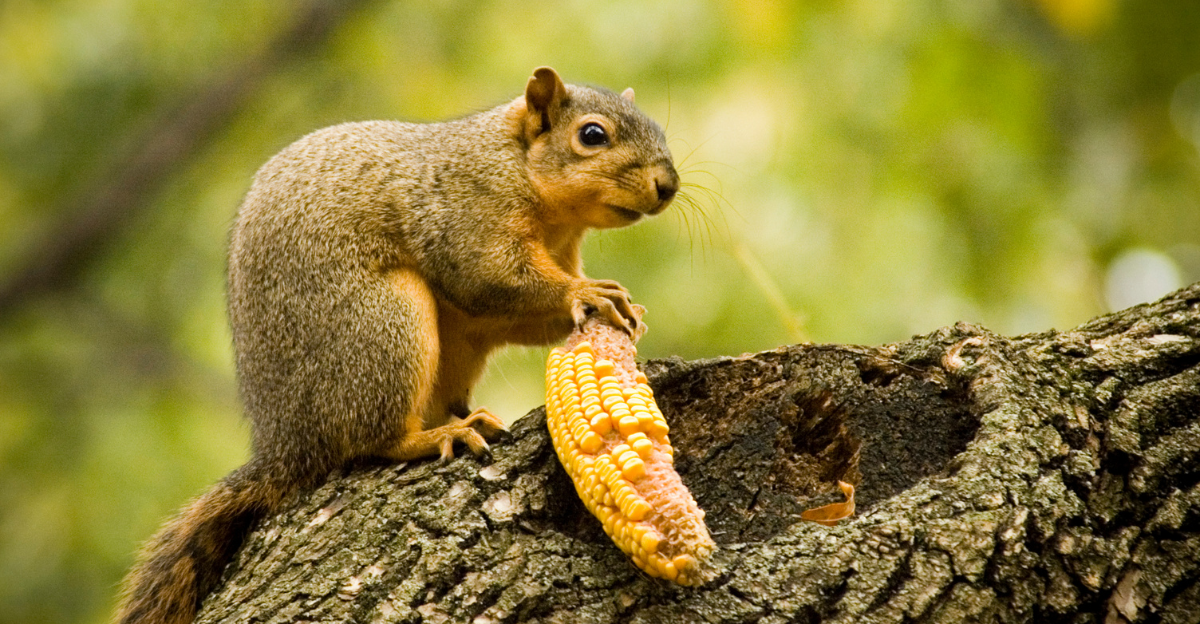
Not all squirrels stay active year-round. Some ground-dwelling species enter true hibernation, surviving entire winters without eating or drinking. During this time, their bodies lower metabolism, conserve water, and suppress thirst—functions scientists still marvel at. They even maintain essential brain activity while everything else slows.
Unlike animals that must periodically wake, these squirrels remain dormant for months. It’s one of nature’s most efficient survival systems, allowing them to outlast conditions that would kill less-adapted creatures. Hibernation isn’t just sleep—it’s transformation. When the world turns hostile, squirrels don’t fight it. They outwait it.
12. They Easily Adapt to Cities, Forests, and More
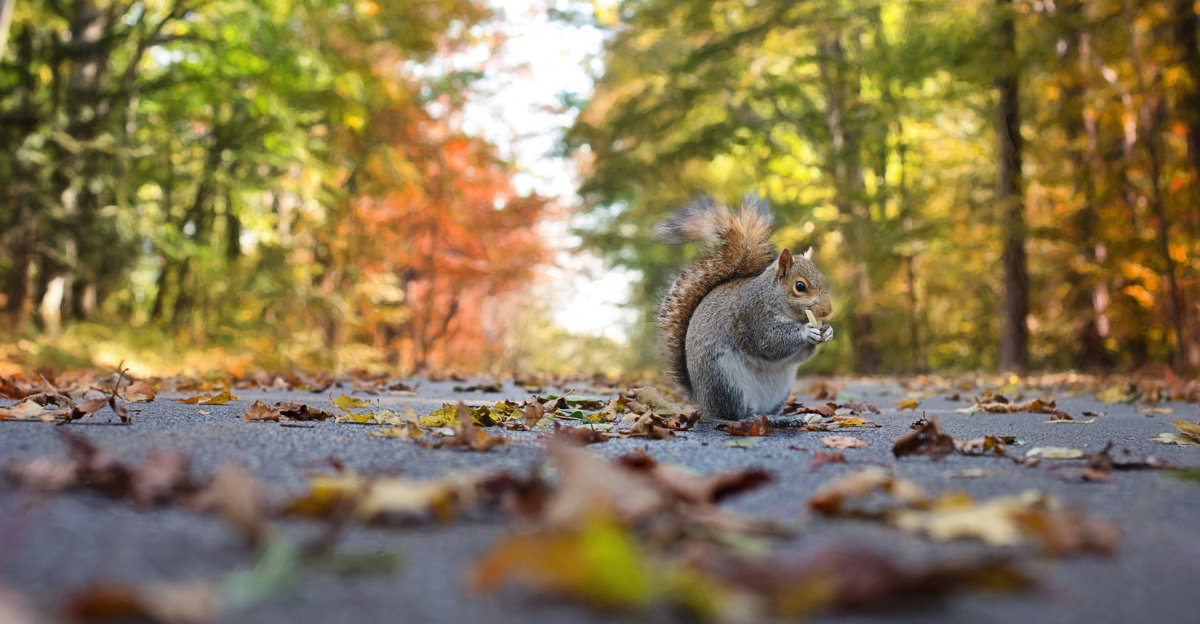
From dense woodlands to urban parks, squirrels adjust seamlessly. Their combination of intelligence, physical dexterity, and behavioral flexibility makes them remarkably adaptable. They’ve learned to treat telephone wires like branches, cross roads like forest trails, and even raid bird feeders with engineered precision.
While many wild animals struggle in cities, squirrels exploit every opportunity. This adaptability is why you’ll find them almost everywhere humans live. The more unpredictable the environment, the more their strengths shine. Evolution didn’t just favor their traits—it built a creature designed for change. Wherever survival is possible, squirrels figure out how to make it probable.
In the End, Squirrels Win—Here’s the Takeaway
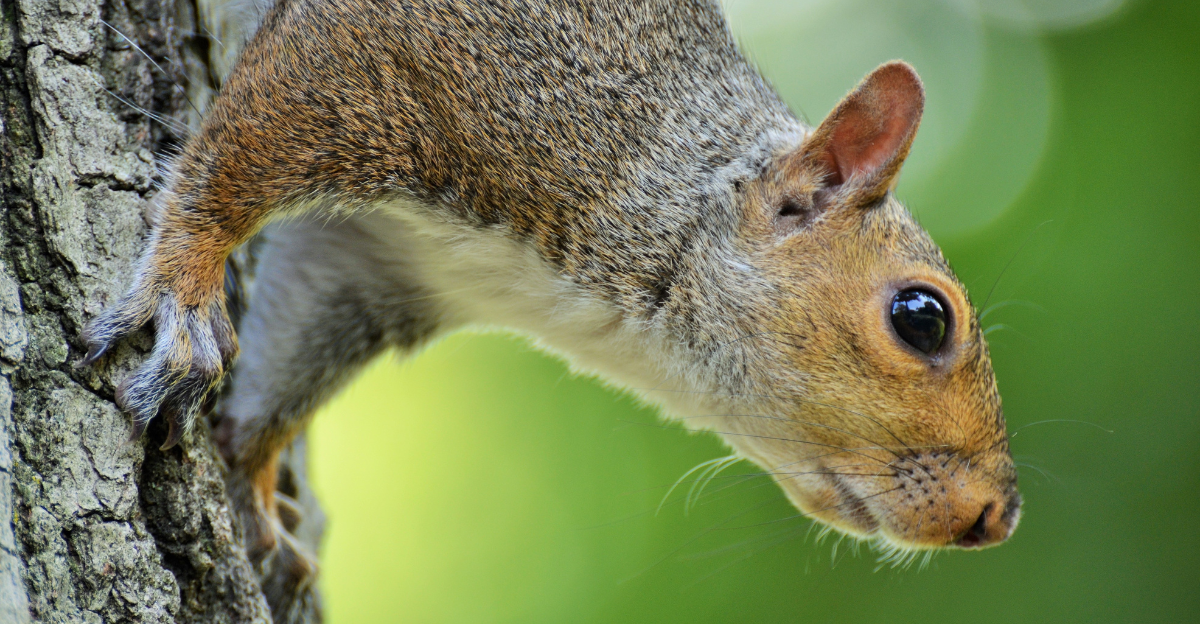
Call them cute, clever, or chaotic—squirrels are all of it and more. They combine memory, mobility, mischief, and mindfulness in ways few animals can match. Every move they make is rooted in survival, and their strategies are as varied as the environments they master.
As the world changes, squirrels adapt without missing a beat. That’s what makes them so remarkable. They aren’t invincible, but they come close—because for every threat, they have a response. Whether facing winter, predators, or humans, squirrels always seem to land on their feet. And that, more than anything, is their secret power.
Explore more of our trending stories and hit Follow to keep them coming to your feed!

Don’t miss out on more stories like this! Hit the Follow button at the top of this article to stay updated with the latest news. Share your thoughts in the comments—we’d love to hear from you!







